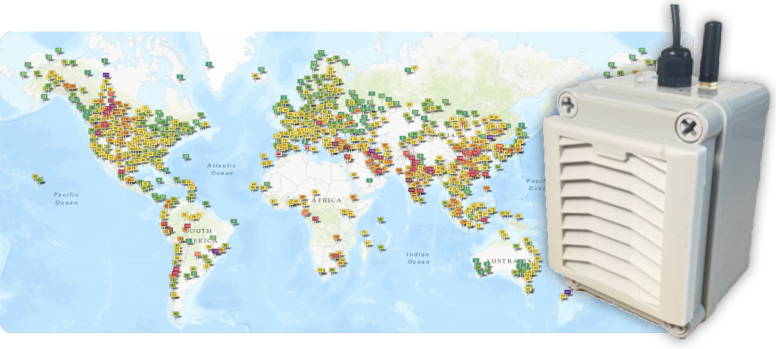Our GAIA air quality monitors are very easy to set up: You only need a WIFI access point and a USB compatible power supply.
Once connected, your real time air pollution levels are instantaneously available on the maps and through the API.
The station comes with a 10-meter water-proof power cable, a USB power supply, mounting equipment and an optional solar panel.

